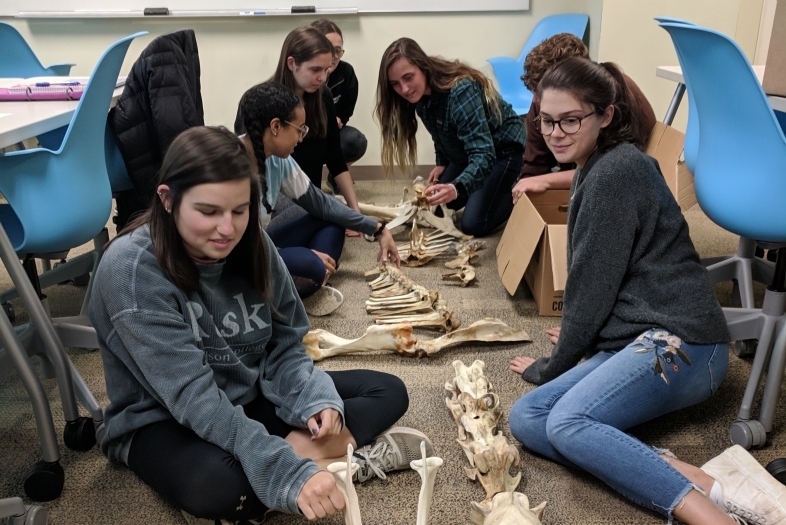
Anthropology Major and Minor
The Anthropology Major and Minor at Davidson
The anthropology major and minor provide you with a firm grounding in social theory and the comparative study of human diversity through time and in different world regions.
Major
Course offerings provide introductions to three of the four sub-disciplines of anthropology (sociocultural, biocultural, and archaeological anthropology; linguistics is not currently being offered) and a number of area surveys, supplemented by seminars on anthropological theory and more specialized topics. Elective courses allow you to tailor your major to particular intellectual or career goals, as do independent studies. Many of the upper level courses can be directed to specific regions if you are interested in a particular region of the world.
Anthropology is particularly exciting for those students who want active engagement with their studies. All majors complete a methods requirement involving independent research. Student projects may involve interviewing informants for family histories, researching archives on historical topics, studying ethnic performances or festivals, or a myriad of other possibilities.
Minor
Anthropology is an ideal complement to a number of majors. Anthropological theory has been an important influence in contemporary interpretations of religion, literature, and social history, while the cross-cultural approach of anthropology will be of particular importance to those interested in international careers.
Courses examine issues of race and ethnicity from a variety of perspectives. Offerings in archaeology provide coverage of a number of past time periods and societies as well as theoretical perspectives that usefully supplement offerings of the history department. For those interested in biology, anthropologists have been prominent in primatology (the study of primates), the study of human evolution, forensics, and studies of human ecology, including comparative medical systems, nutrition, and human adaptation. Pre-med students may wish to take advantage of courses in medical anthropology or human evolution. Those studying Africa, the African diaspora, East Asia, and Latin America will also find several courses relevant to their interests.
If you have any questions or would like additional information, please contact Laurian Bowles at labowles@davidson.edu.
Fellowships are competitive awards and programs that provide funding and other resources for meaningful immersive work, like research, teaching, or service. Like scholarships, fellowships can also support academic study.
These featured fellowships support a variety of experiences in and outside of the U.S. Interested candidates should contact Davidson’s Office of Fellowships to learn more about these fellowships and other programs.
Interested in Studying Anthropology at Davidson?
-
Request Admission Info
Learn whether studying this program at Davidson is the right fit for you.
-
Visit
Connect with Davidson both in-person and virtually to give you a sense of all that Davidson offers.
-
Apply
Find out how to apply, dates and deadlines, and what you'll need to start your journey as a Davidson Wildcat.